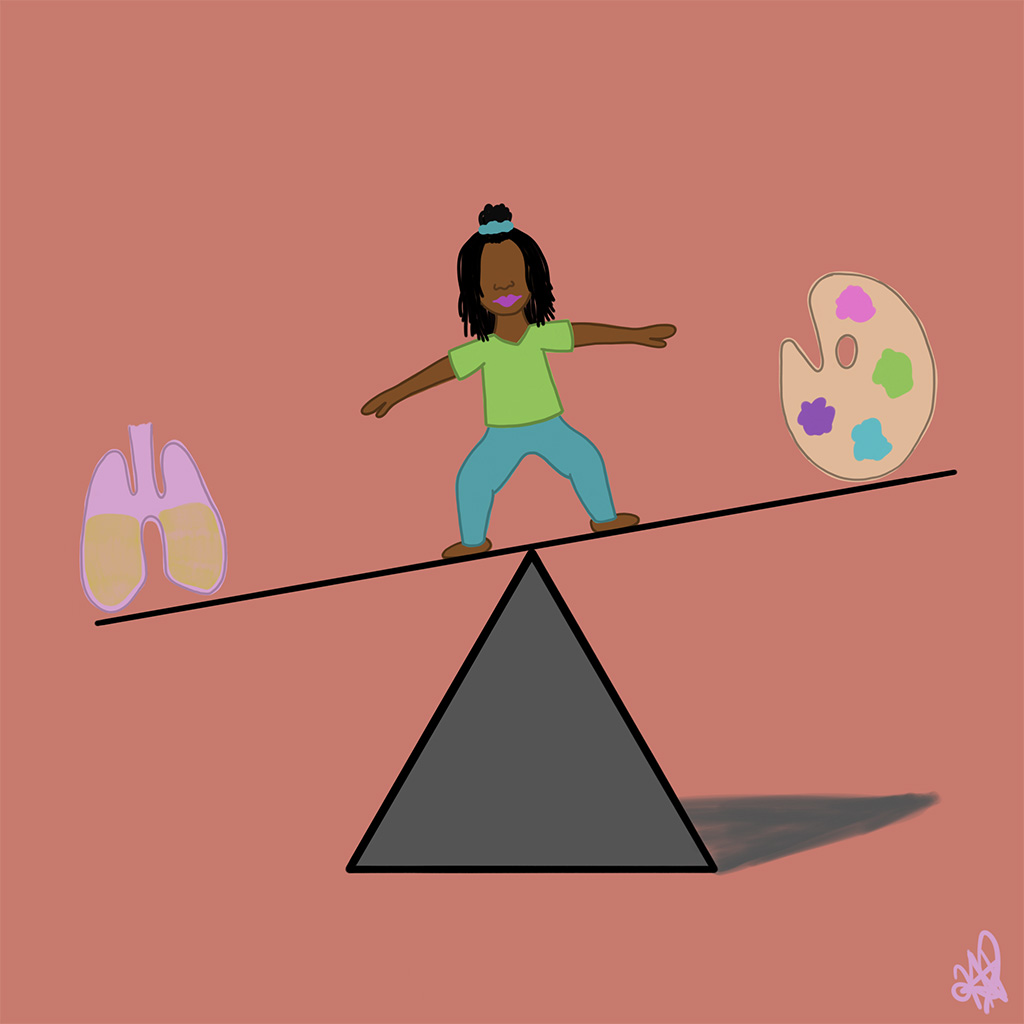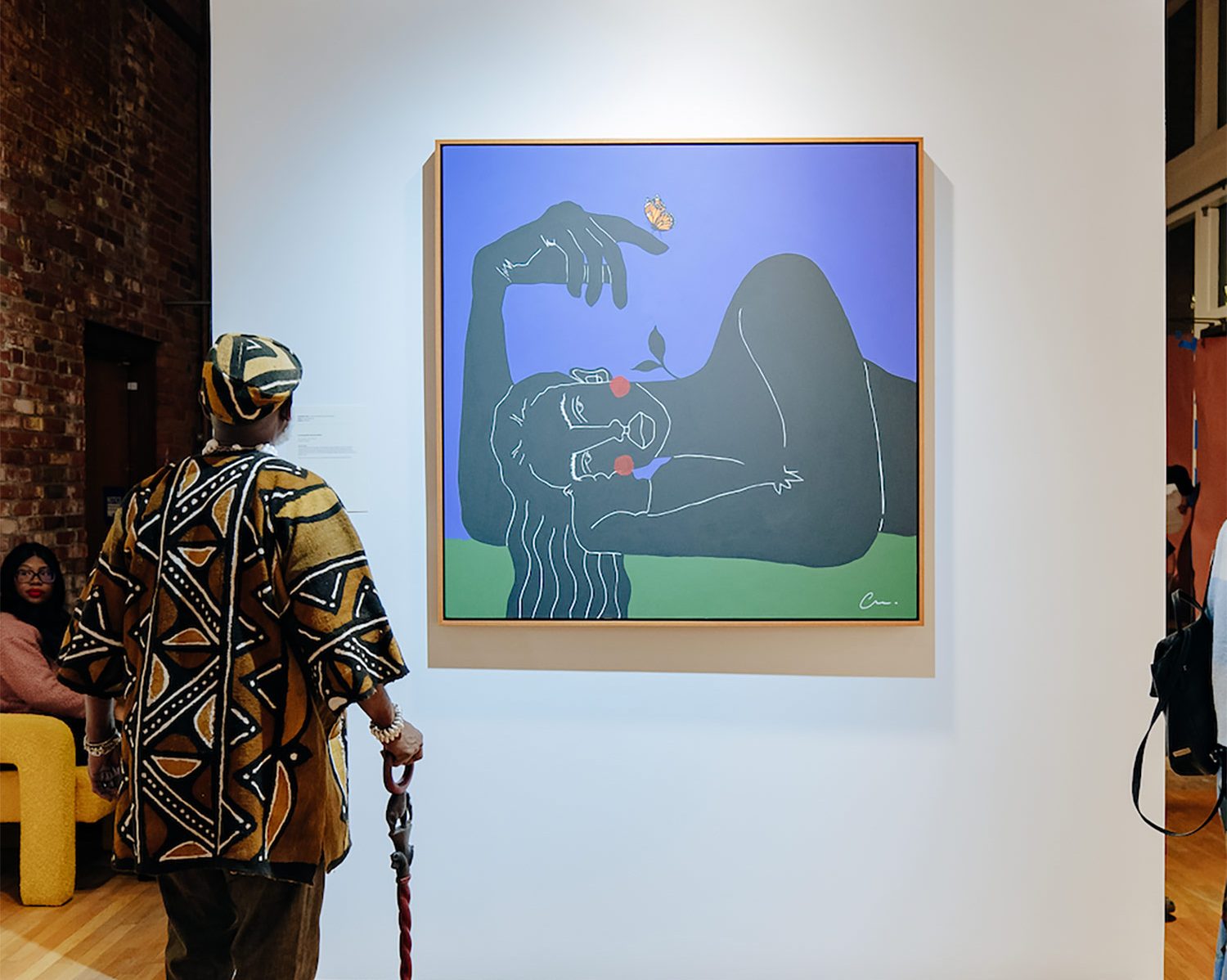
Despite Kadazia Allen-Perry’s youth, her cystic fibrosis has forced her to confront her own mortality. In her autobiographical documentary, Chronic Means Forever, the African-American first-time filmmaker provides an intimate exploration into the feelings of alienation and frustration which accompany her life-long diagnosis.
Allen-Perry is faced daily with the perpetual struggle to balance her creativity while navigating her battle against ill-health. Her radical documentary delves deep into Allen-Perry’s innermost emotions and touches upon her attempted suicide, depression and complicated relationship with the healthcare system.
In the following interview, Allen-Perry speaks to why she pursued a film which navigates such deeply personal and difficult subjects, as well as how the act of filmmaking itself has allowed her to release pent up frustrations and alter other people’s perceptions of her as an artist and as a person.
Chronic Means Forever Documentary Trailer
Winner of the Best Feature Award at Northwest Film Forum’s Local Sightings Film Festival 2018, Kadazia Allen-Perry talks to us about her filmmaking process and confronting her chronic illness through creating art ahead of her encore screening at Northwest Film Forum on March 3rd, 2019.
The intimacy of Chronic Means Forever makes it compelling to watch as an audience member because you explore very personal areas of your life with such raw honesty. How was it to delve into the depths of your own emotions so publicly, and why did you decide to pursue the film in this way?
Cystic fibrosis is a disease that you can only be born with. And while it has been a part of my everyday life for all of my life, I didn’t used to bring it up with others–friends and family included. Sometimes this was because they’d never understand, and other times, I didn’t want to be that person always complaining about the same thing. I never allowed myself the time or space to express my feelings surrounding my battle with cystic fibrosis. But I got to a point where I couldn’t just suffer in silence anymore. Art has always been how I explore my most pressing questions, and film allows you a near endless amount of time to express a single idea. I made a feature-length film to talk about my life with cystic fibrosis because rather than settle for the CliffsNotes version I usually give people.
In the film, you write a letter to your mother detailing past traumas and expressing the reasons behind your reluctance to go to certain medical appointments. You are brutally honest about the innermost fears and frustrations connected to your health. What has the reaction been like to the film from your family, friends, and wider community?
I would say my family had the most extreme reaction. In the sense that it changed the way they viewed me–in a good way, though. After watching the film, they could no longer view me as lil KeKe with the buck teeth. They suddenly had to realize I’m grown up Kadazia with the buck teeth. They used to give me all of my medicines and breathing treatments, so they were very aware of my having cystic fibrosis. But a lot of them–especially my relatives that still live on the east coast–were able to forget about my disease once I was able to take care of my day to day medical needs on my own. Even beyond that, a lot of them hadn’t realized what it meant for me to pursue a career as a full-time freelance artist. Watching Chronic Means Forever forced them to recognize my daily struggle with CF and take me seriously as an artist.
The film has been jarring for friends and the wider community from an able-bodied stand point. Folks who haven’t had to navigate the healthcare system on a regular basis don’t realize just how corrupt it is. And those who do relate have thanked me for articulating feelings they’ve also experienced but didn’t know how to express.


Was the whole process of confronting your emotions in this way through filmmaking in any way cathartic?
I would definitely say making this film provided me with a much-needed release of built up emotions. The whole this is like a very long exhale. Which is ironic since the underlying soundscape is cut from a 2-hour recording of me breathing. But on the real, a lot of what I expressed in the film I’d never had the space to before. Most of the audio was recorded on a tiny handheld recorder that I carried around with me everywhere to keep track of all my rambling thoughts about how much my body was failing me and how the healthcare system seems to have always failed me. And each time I spoke, the thoughts out loud, it finally became quieter in my mind.
In the film you explore the lack of privacy and agency you have come to feel in your own body as a result of years of invasive medical procedures and interactions with medical professionals. Does creativity help you reclaim or reassert your sense of self? If so, how?
Creativity does. Especially filmmaking. When you work with a camera, you have control over what you capture, the story you tell. And that control carries over into the editing and distribution of whatever the final product is. I also feel this sense of control over the tactile art mediums that I’ve been experimenting with over the past year and a half. Being able to manipulate materials to express the image I have in my mind just feels so electrifying. When I’m able to transform a lump of clay or a drawing into an image in my mind, everything starts to feel a little more possible.
Despite chronic ill-health, your determination to create art seems resolute. You exude such an inspirational ambition to live life to its full potential with creative purpose! How do you motivate yourself to overcome the challenges of your illnesses in this way?
My first year in college, I didn’t study anything art-related. I sank deep into a depression in that time, but I couldn’t decipher why. I just knew life seemed impossible. Halfway into my second year in college, I attempted suicide and ended up dropping out of my first university. In that time out of school, I started creating again, only on an occasional basis, and undecipherable pieces started to reveal themselves in my mind. I started up at a new school after my 21st birthday in the spring quarter of my first year there I bought a camera and the pieces started to come together. I NEEDED art to be a part of my life in a permanent way. And I was ready to do anything to make that a priority. Sadly, in the beginning stages of rediscovering my love for artistic expression, I put my health on the backburner, and it caught up to me. It was while I worked on Chronic Means Forever that I began putting in the work to find the balance between taking care of my health and feeding my mind creatively. I have to be alive to continue making art. And I have way too many creative ideas buzzing around to check out now.

Can you describe your relationship to the medium of film as a mode of expression compared to the other art forms that you engage with?
Film allows you to communicate an idea in a way other folks can concretely identify with. But it also provides enough modes of manipulation to go beyond what I thought was possible. I can create a world that I’ve dreamed up and put it on camera in a way that almost makes you question the legitimacy of the reality you live within everyday. There aren’t many other mediums that allow me that freedom.
What other work do you want to make in the future? Are there certain stories you want to explore through filmmaking?
I’ve taken a step back from the camera for the last year to focus on my health. While I do that I have been working with more tactile crafty mediums. I’ve been teaching myself how to draw, paint, work with clay, make jewelry, paper crafts, toy-making… Everything under the sun. Anything that peaks my interest: I say, “What the heck,” and try it out. So far nothing has been a fail. And I feel like all of these other mediums will do wonders for my filmmaking. I have more of an experimental style, so all this art medium dipping is just expanding my bag of tricks.
When I do have the opportunity to get behind a camera again I already have many ideas on deck. A couple thrillers, a lot of science fiction, and stop-motion animation. I want every film I make to force me into learning something new. And I intend for all of the art I make to explore parts of what makes up our identities.
Can you give us an update as to your health and your relationship to healthcare professionals since making the film?
Since Local Sightings Film Festival, I have been officially put on the lung transplant list. This basically means that at any moment I can get the call that they’re ready to snatch out these crusty old lungs and replace them with some that will allow me to finally experience what it feels like to take a deep breath. The healthcare system is still run by a bunch of elitist folks who don’t actually know what it’s like to be a patient. There are a few people in the field that I really vibe with and who actually listen, but it’s truly an uphill battle. Luckily, they have me on oxygen full-time now, so I have enough energy to fight it.
What did it mean to have your film shown at Local Sightings, and for it to win awards there?
Both having my film shown and winning awards at Local Sightings were very validating experiences. For years, I felt like my having cystic fibrosis was jut a blip on everyone else’s radar. To be seen and really listened to is a real honor.
Ω







